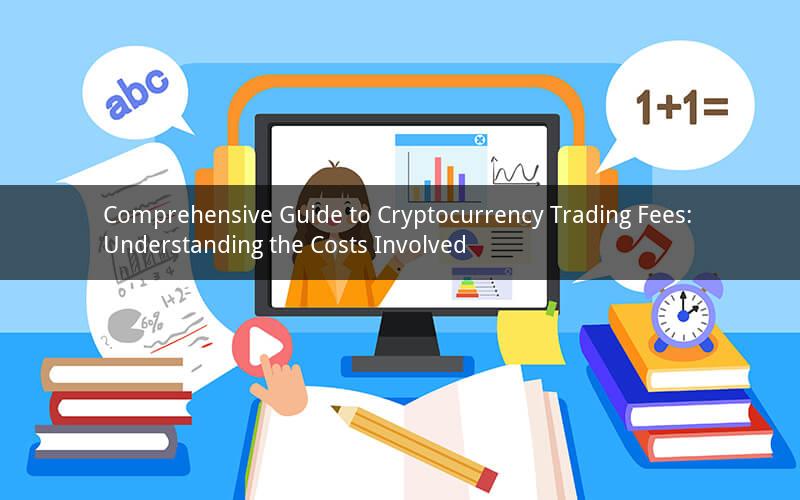
Trading cryptocurrencies has become increasingly popular over the past few years. However, many individuals are still unaware of the various fees associated with trading digital assets. In this article, we will delve into the different types of fees you might encounter when trading cryptocurrencies, their impact on your wallet, and how to minimize them.
1. Exchange Fees
One of the most common fees associated with trading cryptocurrencies is the exchange fee. These fees are charged by cryptocurrency exchanges for facilitating trades between buyers and sellers. The exchange fee is usually a percentage of the transaction amount and can vary significantly from one platform to another.
a. Taker Fees: Taker fees are charged when you place a market order that gets immediately filled by another user's order. This fee is typically higher than the maker fee, as exchanges need to incentivize users to provide liquidity.
b. Maker Fees: Maker fees are charged when you place a limit order that adds liquidity to the market. These fees are usually lower than taker fees, as they encourage users to provide liquidity and maintain a healthy order book.
2. Withdrawal Fees
When you decide to withdraw your cryptocurrency from an exchange to a personal wallet, you will likely encounter withdrawal fees. These fees are charged by the blockchain network for processing the transaction and are usually a fixed amount or a small percentage of the withdrawn amount.
a. Blockchain Network Fees: The blockchain network fee is a standard fee charged by the network for processing transactions. The fee amount can vary depending on the network's congestion and the size of the transaction.
b. Exchange Withdrawal Fees: Some exchanges may charge their own withdrawal fees on top of the blockchain network fees. These fees are typically a fixed amount or a small percentage of the withdrawn amount.
3. Deposit Fees
While deposit fees are not as common as withdrawal fees, some exchanges may charge a fee for depositing funds into your account. These fees can be in the form of a flat fee or a percentage of the deposited amount.
4. Trading Fees for Margin Trading
If you engage in margin trading, you may encounter additional fees. Margin trading involves borrowing funds from the exchange to increase your trading position. The fees associated with margin trading include:
a. Interest Fees: Interest fees are charged for borrowing funds from the exchange. The interest rate can vary depending on the exchange and the market conditions.
b. Liquidation Fees: If your margin trading position becomes undercollateralized, the exchange may liquidate your position, resulting in a liquidation fee.
5. Slippage Fees
Slippage fees occur when the price of the cryptocurrency you are trying to buy or sell moves significantly between the time you place your order and when it gets executed. This fee is not charged by the exchange but is a cost associated with market volatility.
How to Minimize Cryptocurrency Trading Fees
Now that we have discussed the various fees associated with trading cryptocurrencies, let's explore some ways to minimize these costs:
1. Choose the Right Exchange: Research and compare different exchanges to find one with competitive fees. Consider both taker and maker fees, as well as any additional fees like withdrawal and deposit fees.
2. Use Limit Orders: Instead of placing market orders, use limit orders to provide liquidity and potentially benefit from lower maker fees.
3. Optimize Blockchain Network Fees: When withdrawing funds, choose a time when the blockchain network is less congested to lower your network fees.
4. Keep Your Funds Secure: Avoid withdrawing funds to exchanges frequently and instead use a personal wallet. This will help you avoid withdrawal fees and keep your funds safe.
5. Avoid Margin Trading: If you are not experienced in margin trading, it is best to avoid it to minimize the risk of additional fees like interest and liquidation fees.
Frequently Asked Questions (FAQs)
1. What is the average exchange fee for trading cryptocurrencies?
The average exchange fee for trading cryptocurrencies is around 0.25% to 0.5%. However, fees can vary significantly depending on the exchange and the type of trade.
2. Can I avoid withdrawal fees when trading cryptocurrencies?
Yes, you can avoid withdrawal fees by using a personal wallet instead of withdrawing funds to an exchange. This will also help you keep your funds secure.
3. How can I minimize blockchain network fees when withdrawing cryptocurrencies?
You can minimize blockchain network fees by choosing a time when the network is less congested, such as during off-peak hours.
4. Are there any ways to reduce slippage fees?
Slippage fees are a result of market volatility and cannot be completely avoided. However, you can minimize the impact by using limit orders and keeping a close eye on market conditions.
5. Should I trade cryptocurrencies on a platform with lower fees?
Yes, it is generally a good idea to trade cryptocurrencies on a platform with lower fees, as this can help you save money in the long run. However, always consider other factors such as the platform's security, reliability, and user experience before making a decision.